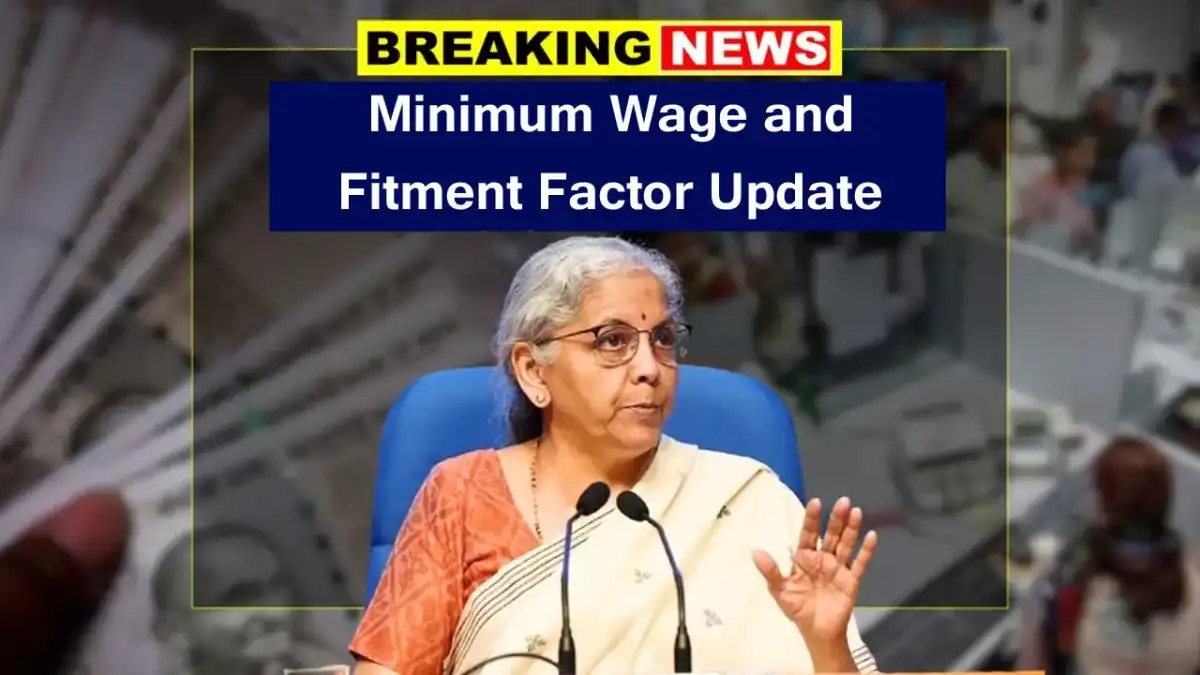8th Pay Commission Salary Hike Starts This Month: Govt Employees Set for a Big Payday!
8th Pay Commission Salary Hike Starts This Month, 8th Pay Commission Update – After months of anticipation, the 8th Central Pay Commission has finally received approval, bringing good news for government employees across the country. The new salary hikes are now officially in effect, marking the biggest overhaul of the government pay structure in over a decade. The changes aim to correct long-standing pay disparities, account for the rising cost of living, and introduce additional incentives for high-performing employees. If you are part of the government workforce, get ready for a significant boost to your salary package!

Key Highlights of the New Pay Structure
Big changes are on the way! First and foremost, the minimum salary is seeing a massive jump — increasing from ₹18,000 to ₹66,000 per month, a rise of 3.7 times. To streamline things further, the Pay Matrix has been simplified: Levels 18 to 16 are now merged, and several new higher pay levels have been introduced beyond the 2016 structure.
One of the most exciting updates is the introduction of the Performance-Linked Incentive (PLI). Employees who deliver outstanding performance will now be eligible for bonuses in addition to their regular salary — a major move towards promoting efficiency and excellence in the public sector.
The House Rent Allowance (HRA) system has also been overhauled. The old three-tier city classification has been expanded to a six-tier system, ensuring that more cities qualify for higher HRA rates based on actual cost-of-living differences. Additionally, the Dearness Allowance (DA) formula is being modified to allow for more than two revisions annually, enabling quicker responses to inflation changes.
To support a smooth transition, the Finance Ministry has launched a dedicated helpdesk and an online portal, providing employees with clear guidance on understanding and adapting to the new pay structure.
Financial and Economic Impact
Naturally, such a significant salary revision comes with a substantial price tag. The projected cost of implementing the 8th Pay Commission is around ₹1.76 lakh crore annually. Experts are somewhat divided over its economic consequences. Some fear that the sudden surge in disposable income could fuel inflation, while others are optimistic, suggesting it could stimulate consumer demand and benefit sectors like real estate, automotive, and retail.
Dr. Amit Kapoor from the Institute for Competitiveness highlighted that higher disposable incomes might trigger a “consumption-driven growth cycle.” Meanwhile, banks are preparing for an uptick in deposits and loan applications as employees begin to enjoy their enhanced salaries.
Implementation Timeline and Logistics
The rollout of the new salary structure is scheduled to take effect from the end of April 2025. Employees will see the revised salaries reflected in their May 2025 paychecks.
Arrears, covering the period from the recommendation date to the date of implementation, will be disbursed in three installments between May and July 2025. Pensioners are also included in this update; recalculations of pension benefits are currently underway, though final adjustments for older cases may take slightly longer.
To support employees during this transition, the government has launched a dedicated online portal and a hotline to address queries and resolve any issues related to the revised salary structure.
Employee and Union Reactions
The overall mood among employees and unions is largely positive. Union leaders, such as Rajesh Mishra from the Confederation of Central Government Employees, have hailed it as a “significant victory” after years of advocating for better compensation. However, not all voices are in complete agreement. Some unions representing lower-paid staff have raised concerns about the growing disparity in pay between higher-level and lower-level employees.
Despite these concerns, the general consensus is that this development marks progress, and many plan to continue negotiations to address any remaining issues.
Administrative Reforms and Sustainability
One of the most strategic decisions this time is that the government has decided not to wait another decade for a review. Instead, they are establishing a permanent Pay Review Body that will evaluate salary levels annually and recommend necessary adjustments based on up-to-date economic and fiscal data. This approach ensures that salary changes are more consistent and manageable, avoiding the need for large, one-time overhauls every ten years.
Additionally, there are ongoing efforts to streamline and digitize workflows across departments, enhance employee training programs, and introduce more flexible work options, such as flexitime and work-from-home arrangements, where feasible.
Conclusion - 8th Pay Commission Salary Hike
The rollout of the 8th Pay Commission isn’t just a big salary raise — it’s a full shift in the way government jobs are valued and managed. For millions of government workers and pensioners, it brings immediate financial relief and opens doors to more career growth opportunities. For the economy, the surge in disposable incomes could trigger positive changes in consumer spending, banking, and service sectors.


